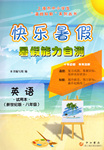题目内容
My six-year-old came home from school this week with two envelopes. One was for a donation to help people in the Philippines. The other was to help hungry families have a Thanksgiving meal.
“I’ll put a check in each of these. Then you can add your own money from your piggy bank, okay?” I said, thinking he’d be so excited to put his own stamp on things.
“That’s okay, mom. You put money in. I don’t want to waste mine,” he sweetly sang as he colored. “I want to fill my bank all the way up.”
Ack! I guess I know what our dinnertime discussion will be about tonight, I thought.
I had figured that through watching his parents donate items, helping us take toys from time to time to needy kids and putting money in the basket at church, he would just understand why it was important to help people in need — and even want to do it himself.
But of course he doesn’t really understand yet. “There’s a big disconnect between the people ‘over there’ and my piggy bank,” said parenting educator Vicki Hoefle.
“There’s nothing wrong with the child. There’s just no connection.”
As for having that conversation immediately, or forcing my son to put money into the envelopes: “Try not to do it now,” Hoefle said. Teaching a child about donating their own money or toys or time to people in need “should be a gentle introduction into what we hope will be a way of life for our kids.”
She suggested these things to help children understand the importance of giving:
* Just talk about it. Then explore the issue from a perspective he can understand.
* Use the course of a year to introduce kids to opportunities. That way, they won’t be shocked when you ask them to stuff their own money into an envelope (like this writer just did).
* Pick a family charity for the year and have a conversation about how you all can help throughout the year.
* Think of this not as something you must teach, but as something to expose them to.
At her house, Hoefle said, “When you got something new, you gave something up.” Each birthday, her children would pick what toys they had outgrown and give them away. “There was a comfort in it. It just became a natural part of the kids’ lives.”
So I will fill those envelopes alone this time. But I’ll make sure he understands why they should be filled—gradually.
1.When the writer asked her son to give money to help the poor, he __________.
A. declined to donate
B. sang a sweet song
C. put all his money in a bank
D. seemed very surprised
2. Hoefle’s attitude towards children’s unwillingness to donate money can be best described as “___________”.
A. criticalB. tolerant
C. positiveD. worried
3.Which of the following is Hoefle’s approach to educating kids about charity?
A. Giving courses about charity.
B. Setting a rule for children to give.
C. Inviting a lot of poor people home.
D. Giving children enough real life chances.
4.What can we learn about the writer from the passage?
A. She often makes donations for people in need.
B. She taught her son a lesson over dinner that evening.
C. She is at a loss as for what she should do next.
D. She invited a parenting educator home for advice.
5.What is the best title of the passage?
A. Kids, please help those in need.
B. Why are kids unwilling to donate?
C. Kindness is lost in the young generation.
D. How can we help kids learn generosity?
1.A
2.B
3.D
4.A
5.D
【解析】
试题分析:文章大意:文章的作者通过自己儿子不愿意给别人捐零花钱的事情,想到教育专家Hoefle说的关于如果帮助孩子学会慷慨。
1.细节理解题。从文章第三段的句子:“That’s okay, mom. You put money in. I don’t want to waste mine,” he sweetly sang as he colored. “I want to fill my bank all the way up.”可知作者让儿子将储蓄罐里面的钱捐出来一些,儿子却拒绝了,选A。
2.推理判断题。从第七段的句子:“There’s nothing wrong with the child. There’s just no connection.” 可知Hoefle对于孩子不愿意捐赠钱的态度的容忍的,选B。
3.推理判断题。从第八段的句子:Teaching a child about donating their own money or toys or time to people in need “should be a gentle introduction into what we hope will be a way of life for our kids.” 可知Hoefle认为教育孩子捐赠给有需要的人要给孩子足够的生活的机会。选D。
4.推理判断题。从第四段的句子:I had figured that through watching his parents donate items, helping us take toys from time to time to needy kids and putting money in the basket at church, he would just understand why it was important to help people in need — and even want to do it himself.可知作者经常给有需要的人捐东西,选A。
5.主旨大意题。文章的作者通过自己儿子不愿意给别人捐零花钱的事情,想到教育专家Hoefle说的关于如果帮助孩子学会慷慨。所以选D。
考点:考查教育类短文阅读

 快乐暑假暑假能力自测中西书局系列答案
快乐暑假暑假能力自测中西书局系列答案